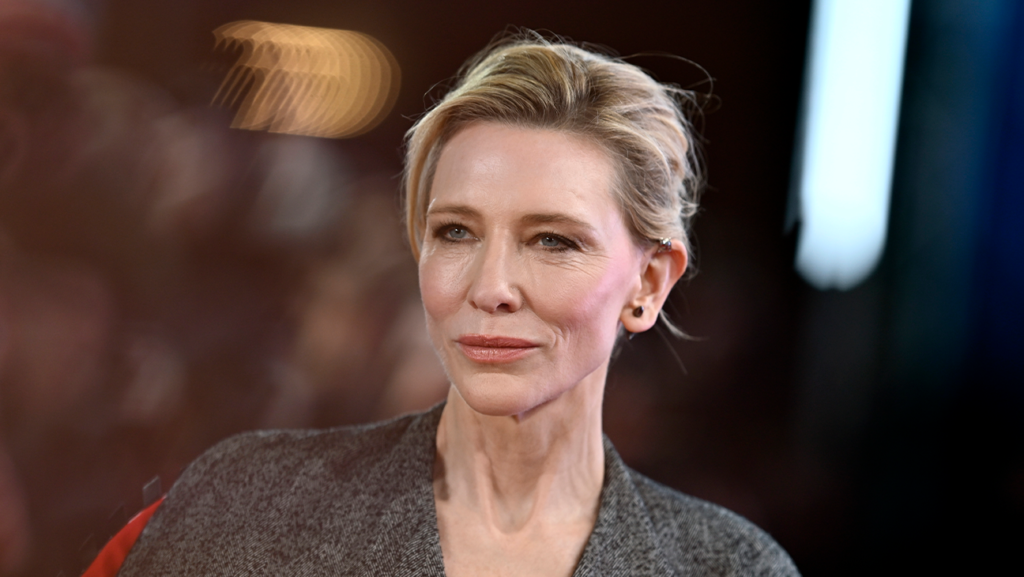
The Graceful Powerhouse of Global Cinema
In the constellation of modern cinema, few stars shine as brightly and consistently as Cate Blanchett. With her commanding presence, fierce intellect, and chameleon-like ability to disappear into characters, she is one of the most respected and versatile actors in the world. From her early beginnings in Australia to becoming a two-time Academy Award winner and a global icon, Blanchett’s journey to success is a masterclass in talent, risk-taking, and unwavering dedication to the craft of acting.
Early Life and Education
Catherine Elise Blanchett was born on May 14, 1969, in Melbourne, Australia. Her father, an American Navy officer, died of a heart attack when Cate was just 10 years old, leaving her mother, an Australian teacher and property developer, to raise her and her siblings. Despite this tragedy, Blanchett’s upbringing was grounded in discipline, curiosity, and culture.
Cate studied at the University of Melbourne briefly but left to travel overseas. While in Egypt, she had a chance opportunity to appear as an extra in a local boxing film — an experience that planted the seed for a serious acting career. Upon returning to Australia, she enrolled in the National Institute of Dramatic Art (NIDA), where she graduated in 1992 with a Bachelor of Fine Arts in acting.
The Rise in Australian Theatre and Film
After graduating from NIDA, Blanchett quickly gained recognition in the Australian theater scene. She won acclaim for her roles in stage productions such as Oleanna and Electra, proving her range early on. Her film debut came in 1997 with Paradise Road, but it was her lead performance in Elizabeth (1998), where she portrayed Queen Elizabeth I, that truly launched her into international stardom.
Her portrayal of the Virgin Queen was powerful, intelligent, and emotionally layered — a rare combination that earned her her first Academy Award nomination and a Golden Globe win. This performance established Blanchett as a major force in global cinema, capable of carrying epic historical dramas with both elegance and fire.
Career Highlights and Iconic Roles
Blanchett’s career is marked by an extraordinary range of roles across every genre. She is as comfortable in period dramas as she is in fantasy epics or psychological thrillers. Some of her most notable performances include:
- Galadriel in The Lord of the Rings and The Hobbit trilogies — bringing ethereal grace to the beloved fantasy saga
- Katharine Hepburn in The Aviator (2004) — a role that earned her her first Academy Award for Best Supporting Actress
- Jasmine French in Blue Jasmine (2013) — for which she won the Academy Award for Best Actress
- Carol Aird in Carol (2015) — a critically acclaimed LGBTQ+ romance that showcased her subtlety and depth
- Lydia Tár in TÁR (2022) — a tour-de-force performance as a fictional conductor unraveling under the weight of her own ego and ambition
Blanchett is known for choosing challenging, complex roles that often explore moral ambiguity, identity, and power. Her acting is deeply intellectual — she prepares thoroughly, studies her characters’ psychological makeup, and uses body language and voice with surgical precision.
Awards and Achievements
Cate Blanchett is one of the most decorated actors of her generation. Her accolades include:
- 2 Academy Awards
(The Aviator – Best Supporting Actress, Blue Jasmine – Best Actress) - 4 BAFTA Awards
- 3 Golden Globe Awards
- Volpi Cup for Best Actress (I’m Not There, 2007)
- Cannes Film Festival Jury President (2018)
- Commander of the Order of Arts and Letters (France)
In 2022, TÁR brought her back into the Oscar race once again, proving her enduring brilliance and fearless artistic choices.
Beyond Acting: Leadership and Activism
Cate Blanchett is more than an actor; she is a global leader in arts and humanitarian work. From 2008 to 2013, she served as co-artistic director of the Sydney Theatre Company alongside her husband, playwright and director Andrew Upton. Under their leadership, the company expanded its international reach and pushed artistic boundaries.
Blanchett is also a passionate advocate for climate action, gender equality, and refugee rights. She is a UNHCR Goodwill Ambassador and has traveled to meet with refugees in countries such as Jordan and Bangladesh. In speeches at the United Nations, she has spoken with conviction and grace about the global refugee crisis, using her platform to amplify marginalized voices.
She is a fierce supporter of women in film and has spoken out against sexism in Hollywood. At the Cannes Film Festival in 2018, she led a group of female filmmakers in a powerful protest on the red carpet to demand greater gender equality in the industry.
Balancing Fame and Privacy
Unlike many celebrities, Blanchett has managed to maintain a private and grounded personal life. She has been married to Andrew Upton since 1997, and together they have four children. The couple deliberately stayed out of the Los Angeles spotlight for much of their careers, choosing instead to live in Sydney and later in the English countryside.
Her interviews are often marked by humility and intelligence. Despite her fame, she sees acting not as a pathway to stardom but as a craft and responsibility — a way to engage audiences with important social, political, and emotional themes.
Legacy and Influence
Cate Blanchett’s legacy is already secured. She has become a role model for actors worldwide, especially for those who value substance over style, art over fame. Younger performers like Saoirse Ronan, Florence Pugh, and Rooney Mara have cited her as an influence and inspiration.
She has also changed the perception of what it means to be a leading woman in film: age-defying, intellectually commanding, and unafraid to explore darkness or vulnerability.